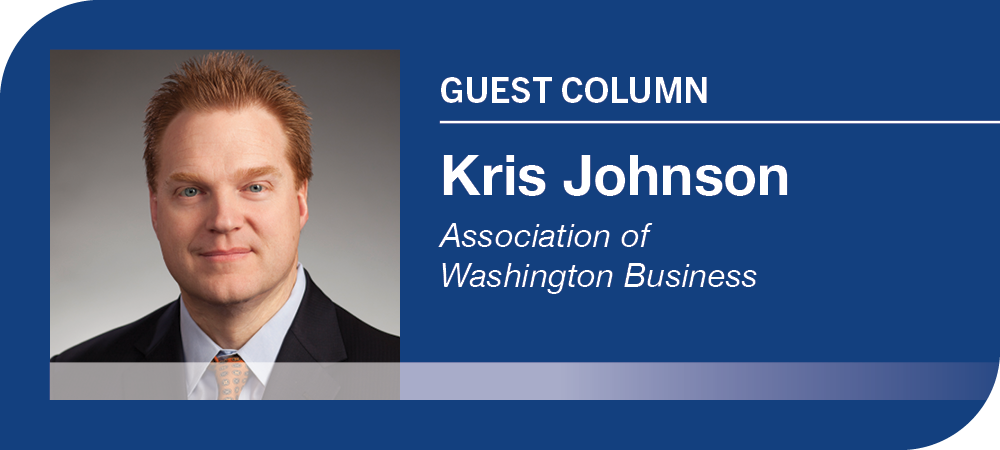
Home » A message to the 2021 Legislature: First, do no harm
A message to the 2021 Legislature: First, do no harm

January 14, 2021
Ten months after the arrival of the coronavirus in Washington, the Legislature convened on Jan. 11 for a new session amid a pandemic that will shape every aspect of the session, from the way lawmakers conduct business (over computer screens instead of beneath the Capitol dome) to the issues they debate.
There is cause for optimism as a vaccine begins to roll out here in Washington and around the country. A return to “normal” life is many months away.
For many businesses, especially those in the hard-hit restaurant, hospitality and retail industries, this will be too long to wait. Without further assistance, many will close their doors for good.
Although federal support is a critical element, the actions state lawmakers take – or don’t take – during this legislation session will affect the ability of employers to survive this crisis and begin to rebuild.
One of the best ways the Legislature can promote economic and job creation is by following the example from medicine and “first, do no harm.” This is not the time to impose new taxes or regulatory burdens on employers that are already struggling to survive.
This is a budget-writing year, which means one of the main tasks facing lawmakers is to adopt a new two-year state budget.
Fortunately, the budget outlook has steadily improved after suffering a steep decline in the spring thanks to federal stimulus from the first round of the CARES (Coronavirus Aid Relief and Economic Security) Act and the easing of business restrictions over the summer.
Rather than facing a budget deficit, lawmakers are now looking at modest budget growth, meaning they can adopt a balanced budget without raising taxes.
Most Washington families would be happy to be in this condition, especially those most affected by the pandemic. Lawmakers should take this opportunity to avoid placing another hurdle in front of employers. We need to grow the economy more, not tax it more.
Another important way that lawmakers can help is to address the unemployment insurance crisis.
Unless lawmakers act, Washington employers will see increases in unemployment insurance taxes of up to 500% because of the Covid-19-induced layoffs and the subsequent need to replenish the state’s unemployment fund.
That’s a huge tax increase on employers through no fault of their own. Fortunately, lawmakers are working to address the issue and we’re hopeful they arrive at a solution early in the session.
There are other ways lawmakers could promote economic recovery.
They could pass a transportation package that puts people to work and invests in Washington’s infrastructure.
They could approve tax increment financing, giving the state a tool for economic development that most states already have. They could push “pause” on the expansion of child care regulations to help parents get back to work and they could prioritize the reopening of schools.
As is often the case in a time of crisis, there are opportunities to be found during this time.
As lawmakers consider ways to rebuild the economy following the pandemic, they have an opportunity to help the communities, the industries and the people that were left behind during the last recovery.
The AWB Institute, the workforce and economic development arm of the Association of Washington Business, recently launched the “Washington in the Making” initiative with the goal of creating a foundation for lasting prosperity for all people and all communities throughout the state.
Lawmakers can help by supporting policies that ensure employees are educated and prepared to meet the needs of a changing workforce, by building up infrastructure and connectivity to support a remote workforce and fueling a culture of entrepreneurship and innovation.
Ten months into this pandemic, Washington’s economy is in a fragile state. Lawmakers can help the economy recover by first doing no harm.
But more than that, they can support the effort to remake Washington in a way that works better for everyone, everywhere.
Go to washingtoninthemaking.org.
Kris Johnson is president of the Association of Washington Business, the state’s chamber of commerce and manufacturers association.
Opinion
KEYWORDS january 2021





